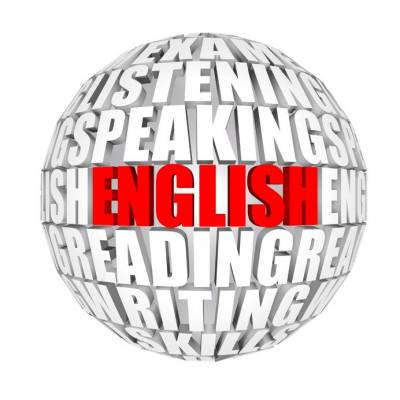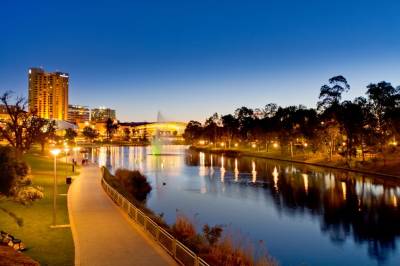If you have recently completed your tertiary studies in December 2014, your student visa is likely to be expiring in mid-March 2015, just 2 more months down the road! If you have not sorted out your visa options for further stay in Australia you need to get started immediately. Read on to discover the options you have for extending your stay in Australia post-studies.
Apply for a 485 Temporary Graduate Visa if you are eligible
There are two streams to the 485 visa:
Graduate Work Stream
- For international students who graduated with a qualification related to an occupation on the Skilled Occupation List (SOL)
- Requires a positive skills assessment
- Valid for 18 months from the date of grant
Post-Study Work Stream
- For international students who graduate with a higher education degree from an Australian education provider, in any field of study
- Only applicable for students who applied for, and were granted their first student visa to Australia on or after 5 November 2011
- Can be granted for up to four years from the date of visa grant, depending on the visa applicant’s qualification
Other criteria require you to:
- have at least competent English
- meet the Australian study requirement
The subclass 485 Temporary Graduate Visa is a good option, but it is not available to all students. Many vocational course graduates miss out and may need to consider other options.
Apply for a Skilled Visa – Subclass 189, 190 or 489
It is possible that graduates can immediately qualify for a General Skilled Migration (GSM) visa. There are a range of factors such as having a positive skills assessment, good English skills and state sponsorship for recent graduates. Occupations that are possible to apply for a GSM visa because they do not require 1 year of experience include: Registered Nurses, Engineers and Accountants.
There are various factors to be considered for this pathway as each state and territory has their own sponsorship requirements and benefits (such as Chain Migration for South Australia); and nominated occupations must be on the skilled occupation list. South Australia is one of the states which strongly supports its own graduates in obtaining state sponsorship for further visa applications. Check with Work Visa Lawyers about the various state sponsorship requirements and their implications for your visa application.
Apply for a 457 Employer Sponsored Work Visa
You may have worked the 20 hours allowed per week during your studies and come across an employer who is willing to sponsor you for a work visa. This pathway requires a few stages of work as the employer needs to be an approved sponsor first before sponsoring you. Work Visa Lawyers assists in checking the eligibility of the employer to be a sponsor and the sponsorship application process. If you have an employer willing to sponsor you, do contact us immediately as the work involved before your visa application can take some time. To have an overview of the work visa application read our blog entry here. It is noteworthy that some employers may sponsor you for a permanent visa immediately.
Apply for a Partner Visa
During your studies you may have met someone who is an Australian or an Australian Permanent Resident. If the relationship is genuine and ongoing, you can consider applying for a Partner Visa. The timing of your application and having strong supporting evidence is important. It is advisable that you check with Work Visa Lawyers on your situation before lodging an application for a partner visa. Read here to understand more about Partner Visas.
Enrol in a new course for further studies to increase your skills
This option can be considered if you encounter the following scenarios:
- The course you recently completed does not meet the 2-year study requirement, or
- The course you completed has no suitable occupation to be nominated for a visa application
While this option is costly and you will not be applying for a permanent visa until you complete the new course, it allows you to stay on in Australia to evaluate your options later, as well as obtain another quality Australian qualification. Do note that there are no guarantees that the new course you enrol in will lead to a permanent residence visa.
To be granted a student visa, you will need to meet the genuine temporary entrant requirement. This requires that you study a course with the intention to return to your home country with the newly acquired skills.
Source:
Department of Immigration and Border Protection (DIBP) website
https://www.immi.gov.au/Visas/Pages/485.aspx
https://www.immi.gov.au/Work/Pages/SkillSelect/SkillSelect.aspx
https://www.immi.gov.au/Visas/Pages/457.aspx
https://www.immi.gov.au/Visas/Pages/801-820.aspx
This information is accurate on the 23 January 2015. DIBP will change requirements in an ongoing manner and all current requirements must be established prior to lodging an application.
Do You Need Help?
At Work Visa Lawyers we are experienced in assisting applicants with skilled visa applications such as subclass 189, 190, 489, 485, 457 visas as well as the Regional Sponsored Migration Scheme (RSMS). We also handle family visa applications including Partner, Parent and Child visas.
If you require further information regarding your current visa options you can contact us through:
(08) 7225 5091 or +61 8 7225 5091
or info@workvisalawyers.com.au












